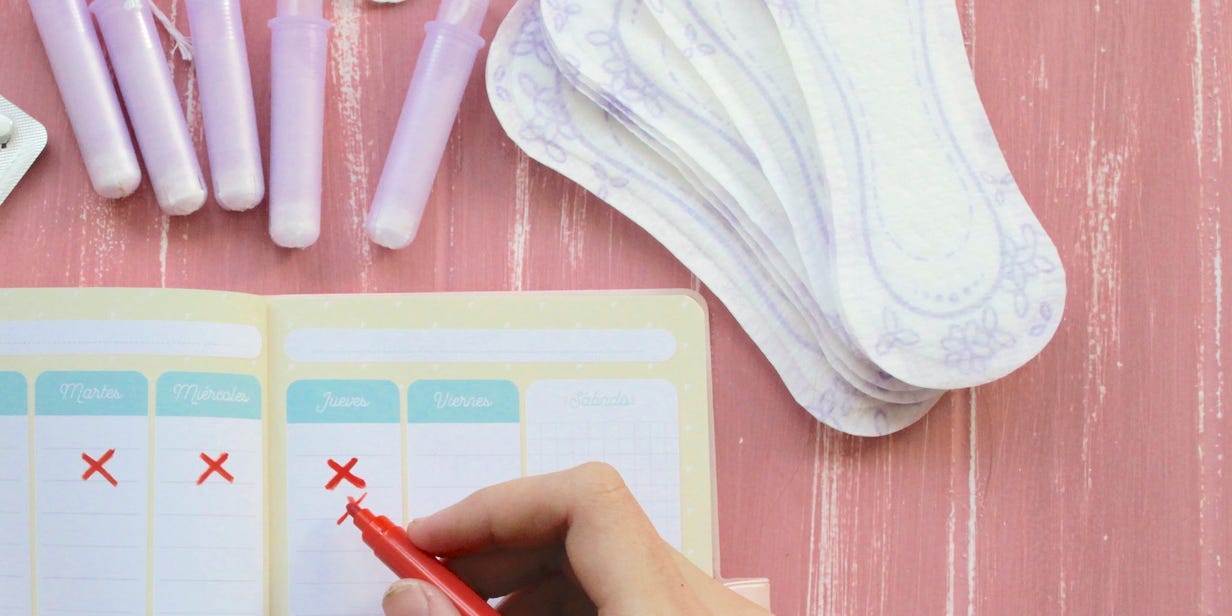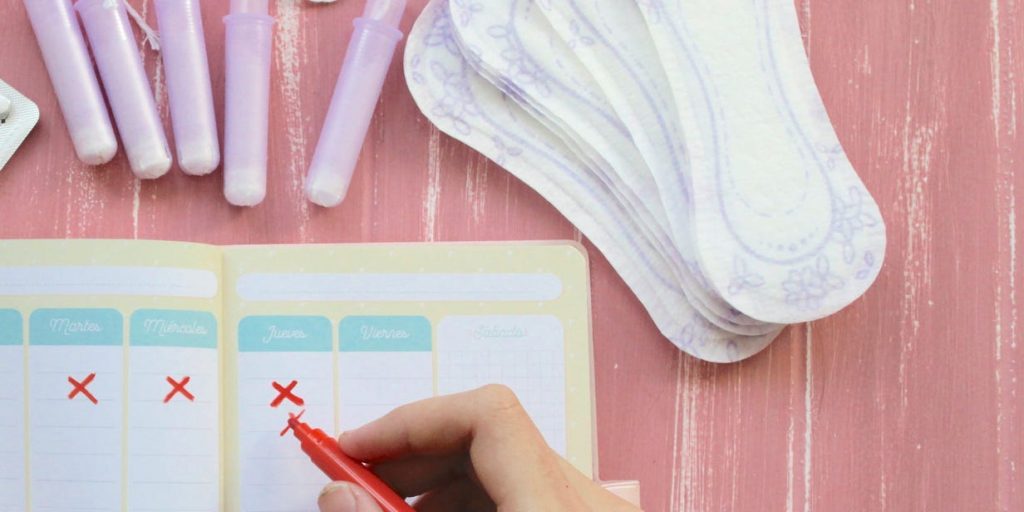
Isabel Pavia/Getty Images
- You ovulate about 14 days before the start of your period.
- You can also tell when you ovulate by monitoring your cervical fluid and using a predictor kit.
- During ovulation, your basal body temperature will rise by about 0.5 to 1 degree Fahrenheit.
- Visit Insider's Health Reference library for more advice.
If you're trying to get pregnant, timing matters.
Your chances of getting pregnant change throughout your menstrual cycle so it's helpful to track your cycle when you're trying to conceive.
Typically, a woman's menstrual cycle is 28 days long, says Mary Jane Minkin, MD, an OB-GYN at Yale University. This is just an average, though – some women have a longer cycle, while others have a shorter one.
Regardless of length, your menstrual cycle begins on the first day of your period, which is why it's helpful to have regular periods if you want to track your cycle. If you have irregular periods it may be harder to tell when you're ovulating.
You're most likely to conceive in the five days around ovulation
"The most fertile time of your cycle is right around ovulation," says Minkin.
During ovulation, you release an egg from your ovaries into one of your fallopian tubes where it can be fertilized by sperm. But if that egg isn't fertilized within 12 to 24 hours, it breaks down and, essentially, dies.
However, the time when you're most likely to get pregnant is longer than 24 hours. That's because sperm have a longer lifespan, living inside a person's body for 3 to 5 days.
So, "if some sperm are deposited a day or so in advance [of ovulation], that's fine," says Minkin, because the sperm will still be around when the egg is released.
Therefore, you're most likely to conceive if you have sex in the five days surrounding ovulation and the day of ovulation. But don't overdo it.
If you have sex too often, the amount of sperm in each ejaculation might be less concentrated and "it may not be as effective at getting you pregnant," says Minkin. Once a day, or every other day, seems to give the best results.
You're least likely to conceive right after ovulation
You are least fertile when you are farthest from the time you start ovulating.
So, right after ovulation, in the days just prior to your period - are when you are least likely to become pregnant.
It's possible, but not very likely, to get pregnant during your period, particularly if you have a short menstrual cycle and ovulate early.
If you have sex the day after your period ends it is possible to get pregnant, because there's potential for the sperm to still be present when you begin ovulating about a week later.
How to tell when you're ovulating
Since it's such a small window, pinning down when you start to ovulate can be tricky. Here are some tips:
- Track your cycle: To start, try tracking your cycle. Ovulation takes place around 14 days before your period begins. Count back from when your period is expected to arrive to find out when you should ovulate. If you have a 29-day cycle, you'll ovulate around day 15, but if you have a longer cycle of 35 days, you'll ovulate around day 21, says Minkin.
- Monitor your cervical fluid: When the texture is creamy and the color is white, that indicates that you're approaching ovulation, and when the fluid becomes slippery, stretchy, and clear, it's a sign that you may be ovulating.
- Take your temperature: Another strategy is to take your basal body temperature, which is your body temperature at rest. Measure it in the morning, when you're still in bed, before eating or doing any activity. During ovulation, your temperature will rise slightly, by about 0.5 to 1 degrees Fahrenheit.
- Ovulation predictor kit: The most accurate way to predict ovulation is with an ovulation predictor kit, says Minkin. These urine tests are available over-the-counter at drugstores and detect the presence of hormones that indicate ovulation. Minkin recommends the First Response ovulation test for its accuracy and ease of use.
She particularly recommends an ovulation predictor kit for people who are older or have been trying to conceive for a few months unsuccessfully. "If you are 25 years old, just got married, and would like a baby - no, you don't need to start with an ovulation predictor kit - go have fun," she says.
Insider's takeaway
You are most fertile in the five days around ovulation. In order to tell when you're ovulating, you can track your cycle, monitor your cervical fluid, and use methods like an ovulation predictor kit.
Conception may not happen right away, but it should occur within 6 months to a year of consistent trying. If you're under 35 and have been trying for a year with no success, Minkin suggests you check with a gynecologist. If you're 35 or older, you can check in sooner, as early as six months.
